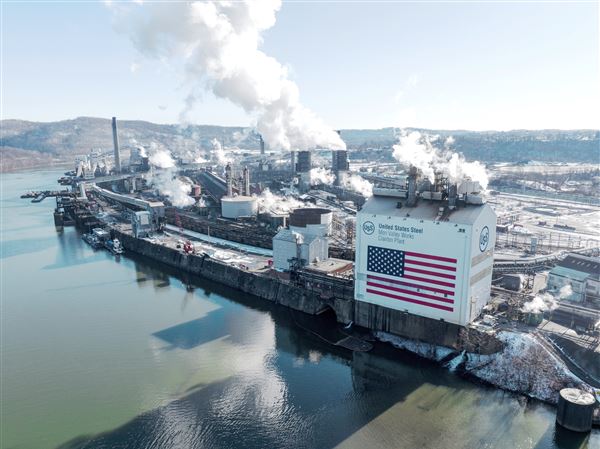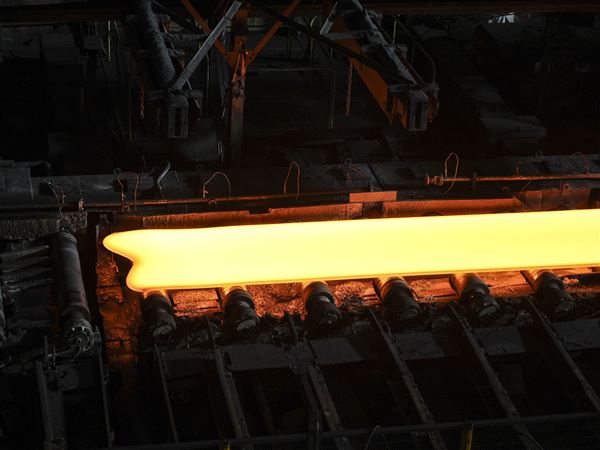First of two parts
FORT WORTH, Texas -- Christine Ruggiero remembers the day vividly -- Sept. 16, 2009. She had left the house at 7:30 a.m. to take her daughter to school. Two hours later, she got a phone call at work from her neighbor.
"They're out there," the neighbor said, looking out the window. "They've knocked down your fence. And they're bulldozing your pasture. And your horses are not put up."
Mrs. Ruggiero jumped in her car and raced home.
Seventeen months later, and still she can scarcely believe that it happened: that drillers from Aruba Petroleum showed up on her land unannounced; that they erected a 175-foot drilling rig and installed two natural gas wells on her small family ranch, 40 miles from the Oklahoma border and dead in the middle of the deep gas region called the Barnett Shale. That the house she and her husband, Tim, paid $240,000 for a decade ago is now valued by assessors at a quarter of that, thanks to the fenced-in wellheads and the green condensate tanks that remain on their land, chewing up about three of the homestead's 10 acres.
But happen it did.
Texas-based Aruba Petroleum is a small, private operator, not as well known as companies such as Devon Energy Production and XTO Energy, or Range Resources and Chesapeake Energy, the latter of which are major players in both the Barnett and Marcellus shales. Certainly, the Ruggieros' experience with Aruba is the exception, not the rule, and might be the most extreme example of what happens when various interests -- the homeowner, the mineral-rights owner and the drilling company -- in the vast Barnett Shale play all collide. Sometimes those collisions result in riches for property owners and jobs for economically stressed areas.
Sometimes they result in frustration with an industry that, especially in Texas, always seems to get what it wants.
Either way, these financial and political collisions are happening more and more often in the Fort Worth area, where deep, horizontal natural gas drilling is prevalent and lucrative. The region offers a preview of what may lay in store for Western Pennsylvania, as it deals with its own rush of Marcellus Shale gas drilling.
The Barnett Shale, covering 5,000 square miles and containing enough cubic feet of natural gas to supply all the gas-heated homes in America for five years, was discovered in the 1980s, but only in the last decade have drilling technologies advanced to the point that tapping the reservoir made financial sense. In 1993, there were only 36 Barnett drilling permits issued; in 2003, the number was 961 and by 2008, there were 4,100 rigs authorized, most of them for deep natural gas, not oil.
In Fort Worth city proper, there are 2,000 wellheads and counting. In the suburbs and rural outlying territories, there are 20,000 (across all of Texas there are more than 90,000 gas wells), and energy firms say there may be enough natural gas below the dry Texas earth to merit the drilling of 80,000 more Barnett wells. Chesapeake Energy alone plans to drill more than 380 Barnett wells this year, and if 2011 plays out like 2010, the company will pay a quarter-billion dollars in gas royalties to mineral-rights owners.
Multiply that times dozens of companies and you have an industry that boasts, by its own accounting, to be worth $100 billion, creating tens of thousands of direct and indirect jobs, much as the energy industry claims will be the case with Appalachia's Marcellus Shale.
"It's been a very important economic development tool, in a very challenging economic time," said former Fort Worth city councilwoman and Democratic state Sen. Wendy Davis, whose north Texas district sits on the Barnett. "But that isn't to say that it should be allowed to proceed without oversight," and without fully examining health and quality of life issues.
It is in the suburbs and rural outposts that the drilling is most visible. Drilling rigs tower above the flat and scrubby landscape, visible for miles by day and illuminated by night like the Eiffel Tower. When the rigs have been disassembled after a few months, concrete or gravel work sites (called pads) remain behind, as do the tangled green wellheads, known as "Christmas trees" for their rough resemblance. Most ubiquitous of all are the condensate and distillation tanks that dot the fields running along virtually every back country road.
The visual and auditory disruptions are most easily detected, but other potential side effects equally worry many who live above the Barnett Shale: toxic fumes and airborne benzene levels; degraded water quality; the increasing possibility of accidental natural gas pipeline explosions, like the ones that happened back-to-back in June 2010, killing three workers in northern Texas.
Most recently, energy companies, politicians and concerned residents have been wrangling over air quality: Have the last five years of drilling had any effect on the level of chemicals in the North Texas air? Some reports are more indicative than others; studies done by the Texas Commission on Environmental Quality have given conflicting results. In Fort Worth, council has been trying to put together an air study for months but can't agree on how much to spend or how comprehensive the sampling should be.
That puts them a few years behind Dish, Texas, 30 miles north of Fort Worth, where residents and the local council decided to do their own air study after trees and horses started dying shortly after a natural gas compressor station moved to the outskirts of town.
"We weren't approached by the industry. We were merely run over by it," said Bill Sciscoe, town commissioner.
Wells and acreage-eating pad sites are one thing, and there are several of those in and around Dish. The gas pipelines are another, crossing through people's yards on their way to and from the main lines.
But the nearby compression yard is the most offensive of all, Mr. Sciscoe said. Compression yards are the hubs where the pipelines deliver natural gas to be treated and compressed (for easier shipping), then transmitted elsewhere. This particular facility runs 12 compression machines, capable of treating billions of cubic feet of flammable natural gas each day, plus dehydrating machines and metering stations. Compression units are noisy, smelly (depending on prevailing winds) and reviled by neighbors -- yet Dish couldn't do a thing about their placement.
"This whole complex came literally to our doorstep. It was installed 12 inches from our city limits. We had no control over it," Mr. Sciscoe said.
As for that air quality study, issued in late 2009, researchers said they found that "air analysis in the Town of Dish confirmed the presence in high concentrations of carcinogenic and neurotoxin compounds in ambient air near and/or on residential properties." A year later, the Texas Department of State Health Services took blood and urine samples from 50 Dish residents to test for traces of toxic chemicals in their blood.
The results?
"The levels we found in Dish were in the same range as the general population," Allison Lowery, department spokeswoman, told The Dallas Morning News.
Tim and Christine Ruggiero didn't acquire the mineral rights beneath their property when they bought the home. But when the owner of those rights decided it was time to sell the gas beneath the Ruggieros' land -- and their neighbors' land too, 950 acres in all -- there was little the Ruggieros could do but accept Aruba's one-time surface-lease payment ($30,000) for the use of their property.
They don't see any royalties from the gas that is siphoned from below their property; that money goes to the man who still owns, and has leased the rights to, the subterranean deposits.
As in Pennsylvania, mineral rights are split from surface rights in Texas. Landowners can negotiate a surface lease payment with the drilling company, but are usually out of luck when it comes to fighting off the drillers and the mineral-rights owners who want access to the gas below. That would involve an expensive legal showdown, with no guarantee of a favorable outcome, which is why so many just take the cash, cross their fingers and hope for the best.
"The mineral estate has precedence over the surface estate in Texas," said Michael "Gene" Powell, a well-known Texas oil and gas man. "Yes, you have the right to not lease your [property], but you do not have the right to prevent your neighbor from leasing and producing his minerals."
When she arrived home that day in September 2009, Christine Ruggiero got a crash course in mineral estate law. Though she and her husband had been told two weeks earlier that drilling might happen somewhere, sometime, on their property, Aruba's team showed up without notifying the Ruggieros in writing beforehand, by her version of events.
Mrs. Ruggiero confronted the foreman. "You're trespassing. And you don't have a permit." (She says she'd been checking the website of the Railroad Commission of Texas, an elected board that handles drilling permits, to see if Aruba had applied for its permit yet.)
"And he said, 'I don't need a permit. I have the lease.' "
Tim Ruggiero was so mad when he first learned of Aruba contractors knocking down a fence and breaching his property that he fetched a shotgun -- then, thinking better of it, a camera instead -- from the house. Within weeks, a drill was erected in their yard. By Thanksgiving, Aruba was "fracking" -- pumping water and chemicals underground, at high pressure, to create millions of fractures in the mile-deep shale formation. By early 2010 they were done fracking and were installing condensate tanks and the two wellheads.
Along the way, there were constant methane odors and, of more concern, a mud blowout that the Ruggieros caught on video. Water quality was a worry, too. The day the drilling started, Mrs. Ruggiero said, was the day her family stopped using their well for drinking and started buying bottled water instead.
Of the many environmental concerns that the energy industry tries to tamp down and foes seek to illuminate, the biggest is that drilling can damage water quality in rural areas. Property owners worry that gas can seep into the water table, ruining water wells, or that some of the fracking water used at a gas well site -- up to 8 million gallons, or more than 12 Olympic-sized swimming pools -- can likewise end up in rivers and streams. The industry says claims of well water contamination are exaggerated and, in most cases, unfounded because the fracking and gas-capture happen thousands of feet below the water table, and because drilling channels themselves are encased in concrete.
But many rural Texans aren't convinced. In December, two federal lawsuits were filed alleging that drilling and hydraulic fracturing contaminated the property owners' private water wells. The Dallas attorney who filed the suits said in a statement, "We believe that hundreds and more likely thousands of property owners have already had the water beneath their surface essentially ruined as a result of nearby drilling and fracking in the Barnett Shale."
The lawsuits came just a few days after the U.S. Environmental Protection Agency began investigating a case of possible methane contamination near Range Resources wells in a site in Parker County, due west from Fort Worth. It was a procedural shortcut unprecedented in recent memory; typically cases of water contamination would be investigated by state, not federal, officials.
But Range says the contamination didn't come from its deep Barnett Shale wells; instead the methane came from wells drilled three decades ago into a much shallower rock formation.
"From Range's perspective, when [an EPA official] got on TV and said there were people out there whose homes were in danger of blowing up, he either was willfully ignorant of the facts or he lied," David Poole, Range's general counsel, said to Fort Worth's Star-Telegram.
Last week, Range Resources announced a deal to sell all of its gas-producing properties in the Barnett Shale for $900 million to an undisclosed private company, allowing it to focus on the Marcellus Shale and other northeastern gas plays.
Of all the megabytes of evidence that Mrs. Ruggiero stores on her home computer, the most visually dramatic is the infrared video of a vapor cloud, originating from a tank on her property, venting across her yard, illuminated by the headlights of an idle 18-wheeler and filling the North Texas air with plumes invisible to the naked eye.
Air samples taken the night that video was shot showed elevated levels of isobutane, and also benzene, a carcinogen. The air, she said, smelled like propane.
Re-watching the video that she's watched hundreds of times, it's hard for her to arrive at any conclusion but this one: "They don't care," she said. "They're not concerned about the safety and the health of my family."
After the wellheads were installed, the land where the Ruggieros' horses once grazed was -- and remains -- fenced off, secured by lock and alarm. Before the parents let their daughter play outside, they sniff the air for gas odors.
The view? Ruined, they say.
Their chances of ever selling the home for what they paid?
Also ruined, at least for the foreseeable future. As a result, they've sued Aruba for degrading their property's value.
While they acknowledge that their experience is an outlier, the Ruggieros still bristle at being broad-brushed as environmental activists and anti-industry troublemakers.
"I'm generally a conservative," said Mrs. Ruggiero, sitting in front of a bookcase filled with titles penned by Republican authors. "Has this changed that? No. Do I think that this industry needs to be more regulated than it is? Absolutely." Financial penalties against the industry -- including one formally approved last month by the Texas Commission on Environmental Quality, levied against Aruba, for $35,500 -- are barely a disincentive, she said, as a single well can produce millions in profits.
Mr. Sciscoe, of Dish, has two sons in the Marines Corps. "I'm not against the oil and gas industry. I come from an oil and gas family," and his father was an acclaimed oilman.
"We just want these people to perform their job in a responsible manner," he said.
Through a spokesman, Aruba said the company had gone out of its way to accommodate the Ruggiero family, erecting a fence, building a new horse shed, planting grass and installing a device that reduces gas emissions by burning them off via an enclosed flare.
"When they purchased the [home], there were existing oil and gas wells in the area, and additional wells were drilled prior to our operations," said Aruba spokesman Fred Stern.
"Despite our efforts to accommodate their wishes, the surface owners have made numerous complaints to regulatory agencies during the past 17 months ... . We believe their lawsuit is totally without merit."
Merited or not, Aruba and other energy companies say occasional lawsuits obscure the larger truth: that for every case like Dish or the Ruggieros', there are many landowners who quietly -- and happily -- live with wells on their property, collecting checks and improving their quality of life. That's especially true in more rural areas, where the mineral estates are larger, and the lease and royalty checks likely to be bigger, too.
'Round these parts, they call them "mailbox millionaires," people who collect four- and five-figure royalty checks each month without lifting a finger. (Most royalty checks aren't this big -- drilling opponents point out the majority of checks are for less than $100 a month.)
"I didn't know ranching was so easy," said Pete Bonds, owner of Bonds Ranch, north of Fort Worth.
Because his ranch, in the family since the 1930s, is so large, he leased out different plots to different energy companies. All told, since the mid-2000s, his lease payments and royalty rights have totaled millions of dollars. The mineral rights will provide for his children after he's gone; other revenues are steered into a limited liability partnership that he set up to handle royalties.
Mr. Bonds said the energy companies have left the property better than they found it, installing gravel roads, making it easier to drive around his ranch. Once or twice, "There's been a gate or two left open" -- a bad thing if you own thousands of head of cattle -- "but after I got through with them, that never happened again." Other than that, he's never had a problem with any of the drills and wells on his front lawn.
Of course, the term "front lawn" is relative when you own 3,600 acres. Pat and Jim Headen, neighbors to the Ruggieros, have a well on their front lawn, too, on a plot a fraction the size of Mr. Bonds'. Like the Ruggieros, they say they had little choice as to the location of the drilling (they wanted it behind their house instead of in front, which diminishes their view of a nearby fishing pond), and no choice when it came to whether Aruba would drill on their property in the first place.
Otherwise, they say they've been treated well by Aruba. When they wanted a fence put up around the well in front of their house, Aruba installed one. When they wanted decorative landscaping to help block the view, Aruba planted trees.
Yet they worry, too, that they'll never sell their home and property for anything close to their purchase price.
"The bottom line," Mr. Headen said, "is if you don't want a well on your property, don't move to Texas."
Meanwhile, the Ruggieros continue to sound alarm bells, in person and online. Mr. Ruggiero has been particularly active, testifying before various government boards and environmental agencies, inviting any and all public officials to visit the "industrial waste site, formerly known as our home." He's been to Pennsylvania to talk about the Marcellus Shale play. The two of them have told their story to "60 Minutes."
They had no intention of becoming "activists," but now that they are, they're doing it with a full measure of gusto, hoping to set an example for daughter, Reilly, who was 9 when the drilling started and turns 11 this month.
"We had no idea that this was going to happen to us," said Mrs. Ruggiero, motioning to her own front yard, where the sun was now setting behind a pair of condensate tanks.
"I think that a lot of people go inside and just hide, or they try and ignore it. ... I just can't do that. It's not in me to do that and it's not in Tim to do that. So it's really taken a lot of our time.
"And a lot of our life."
Tomorrow: Urban drilling in Texas.
First Published: March 6, 2011, 10:00 a.m.
















